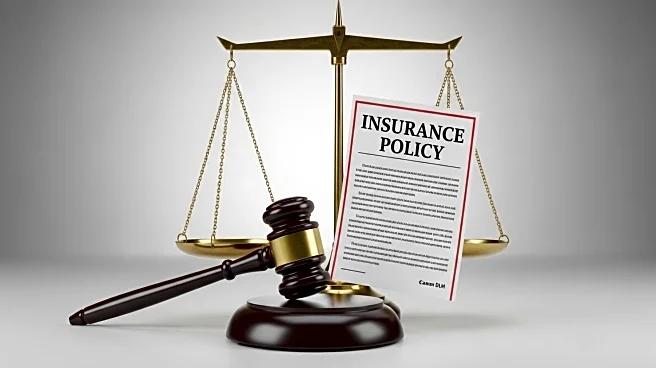What's Happening?
A lawsuit has been filed by the Florida Association of Public Insurance Adjusters (FAPIA) and the National Association of Public Insurance Adjusters (NAPIA) against several property insurers in Florida. The suit challenges policy endorsements that discourage the use of public adjusters by offering premium discounts to policyholders who agree not to use them. These endorsements are included in some excess and surplus policies offered by Velocity Risk Underwriters and other insurers. The lawsuit, filed in Miami-Dade Circuit Court, argues that these endorsements violate statutory rights of adjusters and insureds. The endorsements are seen as part of a broader effort by insurers to limit the role of public adjusters, who are accused of inflating repair costs. The lawsuit highlights concerns over the regulatory freedom of surplus lines insurers in Florida.
Why It's Important?
The lawsuit underscores ongoing tensions between insurers and public adjusters in Florida, a state frequently impacted by natural disasters requiring extensive insurance claims. Public adjusters play a critical role in helping policyholders navigate complex claims processes, often securing higher payouts. The endorsements challenged in the lawsuit could significantly impact the ability of policyholders to receive fair compensation, potentially leading to reduced payouts and increased financial strain on homeowners. The case also raises questions about the regulatory oversight of surplus lines insurers, which are less regulated than traditional insurers, potentially allowing them to implement policies that disadvantage consumers.
What's Next?
The outcome of the lawsuit could set a precedent for how public adjusters are utilized in Florida and potentially influence insurance practices in other states. If the court rules in favor of FAPIA and NAPIA, insurers may be required to revise their policies, ensuring that public adjusters can continue to operate without restrictions. This could lead to increased scrutiny of surplus lines insurers and their practices, prompting calls for tighter regulations. Stakeholders, including policyholders, insurers, and regulatory bodies, will be closely monitoring the case for its implications on insurance policy and consumer rights.
Beyond the Headlines
The legal challenge highlights broader issues of consumer protection and fair trade practices within the insurance industry. It raises ethical questions about the balance between insurer profitability and consumer rights, particularly in disaster-prone areas where insurance claims are critical for recovery. The case may also prompt discussions on the need for more comprehensive regulation of surplus lines insurers to prevent potential abuses and ensure equitable treatment of policyholders.










